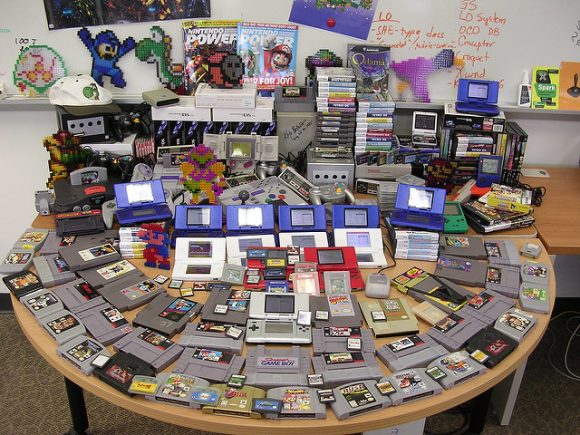Reality Bytes: Cautious Optimism and the Video Game Crash of 1983
The holiday season is a time of giving, spending time with loved ones, and for some people, playing video games. The video game industry has branched beyond children and into the world of adults, in turn becoming more than just a source of entertainment. In fact, video games have become an art medium almost as well respected as film.
Considering how prominent the gaming industry has become, it’s hard to believe that it nearly met its end during the video game crash of 1983. A combination of blind optimism, inflation, and competition brought the gaming world to its knees.
The Crash of 1983
The video game crash of 1983, also known as Atari Shock in Japan, was an industry-wide recession. Revenues for video game makers dropped almost 97% in only two years. The crash almost destroyed the then-growing industry. Too many companies were too optimistic about gaming and tried to jump into the industry too quickly. In some instances, companies that were completely outside of the scope of gaming tried to participate thus causing major issues for the industry.
But, why did it crash?
- Quantity over Quality– Video game companies couldn’t help but create as many game cartridges as possible. They even believed that customers would buy an entire console just to play certain games. In one instance, Atari rushed development on and created 12 million cartridges of Pac-Man when only 10 million people owned an Atari 2600. Ultimately, the game sold 7 million copies and was met with poor reviews, leaving Atari with an extra 5 million copies in stock.

- Unchecked Competition– At the time, programmers were able to easily reverse engineer and create unlicensed games. This led to some dirty competition, with gaming companies stealing programmers from one another with promises for credit and an endless stream of game cartridges flooding the market. Copies of the same game with different names were being released on a consistent basis. Today, that practice would be equivalent to Nintendo creating a playable Xbox game and releasing it without Microsoft’s permission.
- Economic Inflation– Inflation and the introduction of new coins into the U.S. market also contributed to the crash. Arcades struggled with the loss of value of the American quarter because customers relied on coins to play arcade games. Arcades even lobbied to replace the gargantuan Eisenhower dollar with the Susan B. Anthony dollar which was near the size of the quarter. The new coin, introduced in 1979, was considered a failure because customers complained it looked too much like a quarter.
- Competing Industries– At the time, personal computers and video game consoles were nearly the same price. PCs could often process video games better and they had other programming abilities that made them more attractive than video game consoles.
The Aftermath
The video game crash of 1983 eliminated a lot of competition in the industry as bandwagon and copycat companies quickly went under. Even the top companies in the gaming industry could never fully recover. However, out of the ashes rose Nintendo. Nintendo changed the gaming industry forever by implementing a lock-out chip in their consoles. This lock-out chip was meant to exclude any unlicensed companies from making games for their console. Ultimately, their cautious optimism led to their success which can even be felt today. As the industry began to recover and their demographic grew up, they were able to shift their focus and begin to market games not only to children but to adults as well.

Cautious Optimism
Cautious optimism can be a boon for your business. When joining a growing industry, it is always best to take a hard look and ask the difficult questions before jumping in head-first. When growing or starting your business, these are the core questions you should ask:
- What am I doing differently?– This question is important because most of the gaming industry had similar practices before the crash. If you don’t have a differentiator, then it will be difficult for your business to succeed especially if your industry is crowded.
- Should my business focus more on quality or quantity?– Most of the gaming industry at the time focused on quantity when they should have focused more on quality. In gaming, quality is often seen as far more important. However, in some industries quantity may be necessary for various reasons. It would be best to see what your industry is doing to understand what areas have a need.
- What is the economic situation?– The gaming industry has been having trouble with inflation since the late 1970s. Bandwagon companies should have taken notice of that potential weakness. Seeing the economic situation in your industry and in your country is vital.
- Is my industry regulated?– The gaming industry had no particular protection from dirty competition before the government stepped in to dictate certain practices. It is important to see if your industry is protected from knockoffs or if you can protect yourself from people trying to take advantage of your idea for profit. It is also important to note if there is too much government regulation in your industry because it could possibly hinder growth.
Do you need help determining how optimistic you should be in your industry? Media Genesis can help! We provide business consulting for strategic branding and development. Reach out to us on Facebook or Twitter or give us a call at 248-687-7888 for more information.


.png)
